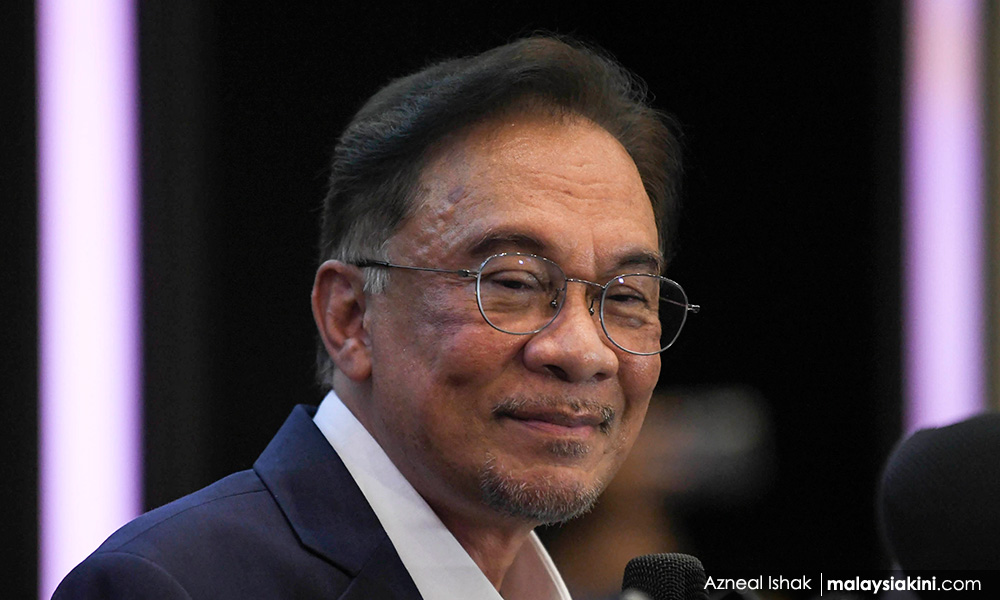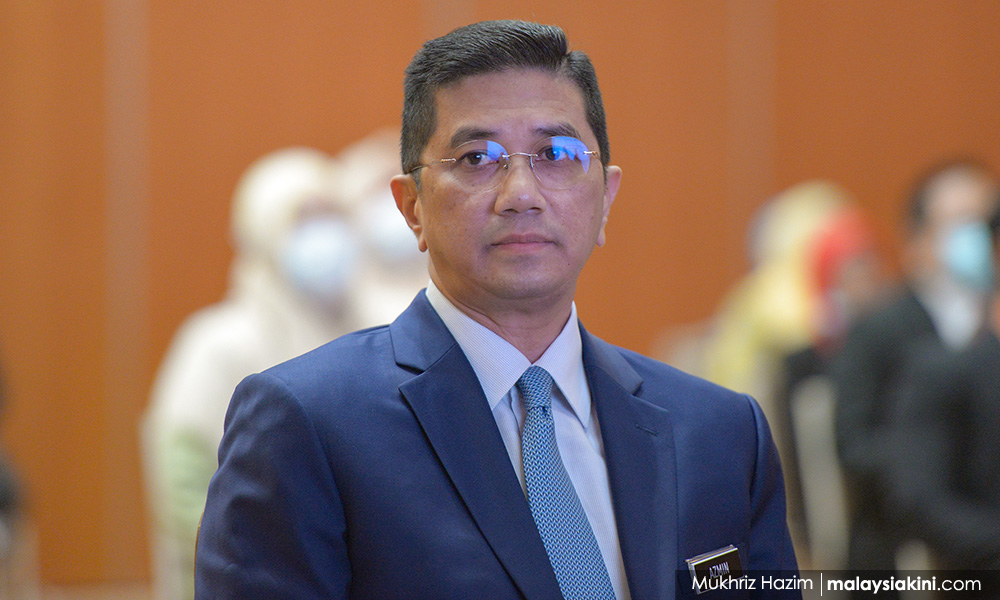2020 was inarguably the most tumultuous year Malaysia has endured since the 1960s, a decade that included the confrontation with Indonesia, Singapore's departure, the Communist insurgency, and bloody racial riots.
In a series of chats, political scientist Wong Chin Huat talks through this year in politics to help understand how a year that began with such promise has ended in confusion and uncertainty.
One of the basic elements of planning for the future is understanding and learning from the mistakes of the past. When historians in the years to come look back at 2020, they might see the supposedly reformist Pakatan Harapan government led by Dr Mahathir Mohamad toppled and replaced by the unelected Perikatan Nasional administration of Muhyiddin Yassin.
It might seem to them that Mahathir was a victim whereas to contemporary observers there can be no doubt that the ex-premier had a role to play in the downfall of his government.
His intended ‘self-coup’ was to end the Harapan administration, in which his hands were tied by a promised handover to PKR president Anwar Ibrahim, and replace it with a unity government that would allow him to serve out a full term.
So why is it then that some members of the public are still confused about Mahathir and his deservedly tarnished reputation? Did he or did he not behave unethically and play a leading role in the downfall of his own government?
“Revelations by Bersatu politicians like Azmin Ali and Wan Saiful Wan Jan corroborated by Mahathir's repeated dismissing of Anwar as future PM and even his DPM suggests the picture,” said Wong.
“Mahathir consented to, if not prompted, the early moves of the Sheraton Move, but his version looked more like a turbo version of his earlier operation of collecting Umno defectors into Bersatu. The main difference was that these defectors could join his government as independents if they didn't want to join Bersatu.
“What’s clear was that the end game was a 'partyless unity government', if possible, in which he would prevail as the only acceptable PM candidate and appoint ministers who would then be personally answerable to him rather than their parties.
“In short, he could rule like a president who has a free hand in cabinet appointments,” Wong said.

He thinks that Mahathir simply does not believe anyone else is capable of taking over and tries to project the idea that his leadership is indispensable.
“Perhaps more than blocking Anwar, Mahathir's core motivation is to serve as PM until his last day, because he genuinely believes Malaysia needs his stewardship.
“It's not 'I don't mind being PM again' but 'I mind not being PM again’. I doubt Mahathir can ever see anyone as both smart and agreeable enough for him to trust and pass on the baton.”
Mahathir’s legacy is destined to be a chequered one. He presided over the boom years of the 1980s and 1990s, yet was not above suppressing press freedom and judicial independence while jailing political opponents.
When he returned as prime minister in 2018, it was meant to serve as a curtain-raiser for a new era of openness, democracy, and prosperity, but instead, his disinclination to keep to the terms of his handover agreement triggered a political crisis that is still playing itself out.
“Mahathir is Malaysians' collective karma. Because of our deep division, his prime ministerial candidature was a necessity for Harapan to succeed in 2018,” said Wong.
“He then exploited many Malaysians' craving for strong leadership and unity to keep Harapan in perpetual crisis (to be fair, he didn't singlehandedly create it) so he can be indispensable.
“Had he got his way fully after Feb 24, he would have never stepped down or appointed an heir apparent. This would have spared us the seat-buying madness under Muhyiddin, but it might also merely postpone the succession crisis.
“So because Mahathir has a retirement problem, Malaysia has a leadership succession problem,” he added.
Wong said it was poetic justice that Mahathir's ambition to be Malaysia’s “permanent prime minister” was terminated in the year 2020, which once symbolised his vision.
“His Parti Pejuang Tanah Air party is likely more short-lived than Tengku Razaleigh (Hamzah)’s Parti Melayu Semangat ’46 party.
"May no one come to lead the opposition or the government as Mahathir’s proxy,” he added as a wish.
Harapan running out of time
Given that Anwar spent a decade in jail, tried to bring a more multi-racial tone to politics, and has been cheated out of the premiership, he could legitimately expect some sympathy. However, his stock has clearly fallen recently, especially after declaring that he has a comfortable parliamentary majority and falling short.

Not only does he seem to have been fooled by a U-turning Umno twice, but he appeared willing to work with disgraced ex-premier Najib Abdul Razak. Furthermore, his own inability to manage personalities within PKR is another cause of his undoing. Is he reaching the end of the road?
“Anwar is too smart for me to believe the storyline that he was conned by Umno,” said Wong.
“He did his dramas because that's the only way to entice Umno rebels to defect. He is like the frog prince who needs to be kissed by princesses to turn into a prince. The princesses he courts, however, all want him to turn into a prince first before they kiss him. That's Anwar's dilemma.”
He added that Anwar's own courting of Umno rebels also had the effect of making the machinations against him seem less condemnable.
Wong suggested that the PKR president needs to rebuild Harapan and a possible grand coalition by forming a shadow cabinet first.
“Anwar stands a better chance of positioning himself as a PM-in-waiting, even just to court Umno rebels, by presiding over a shadow cabinet's weekly meetings than repeating his number claim like a miserable uncle queuing in a Magnum (lottery ticket) shop murmuring that his number will strike the next day.”
Wong said Harapan urgently needs to be reorganised as an effective policy machine.
“It should aim to advance the well-being of the Malays with well-thought policies that are effective, sustainable, and inclusive for all Malaysians.
“Not overcoming the Malays' distrust means Harapan will suffer defeat in many constituencies with a Malay majority/plurality, and a return to power will need a partnership with one or more Malay parties.
“Meanwhile, not having better and coherent policies will put off many in its urban-based core constituency. A low turnout can kill Harapan in many mixed constituencies, the number of which will increase after June 2021 with the influx of new and young voters,” said Wong.
He said Haparan had to find a way to overcome both challenges holistically, not pursuing one at the expense of another.
“Harapan should have proposed a shadow budget this year, which would then legitimise its votes against the budget. It should also start reformulating its manifesto as it can't just recycle Buku Harapan or go into the election without a coherent programme.”
He said that this could be easily delegated to shadow ministers if Harapan had the shadow cabinet.
“But Anwar is simply disinterested, and some Harapan parliamentarians are finding excuses to justify not having one.
“The shadow cabinet doesn't interest Anwar probably because he wants a free hand in offering any ministerial post to Umno rebels and he cares little about having alternative policies after becoming PM.
But his obsession with wanting the PM post beyond everything else may have made his dream even more unachievable.
Realignment is underway
Finally, Wong has this to say to Reformasi-era oppositionists who suddenly turned against Anwar to the benefit of long-time foe Mahathir, blighting their own reputations in the process.

“Notwithstanding the differences made by personalities, what we get from Anwar, Azmin, and even Mahathir is the product of our socio-political realities and political structures.
“Those who oppose Anwar should always remember the structural flaws - from top-down candidate selection to the absence of a shadow cabinet - that enable or reinforce Anwar's personalised leadership.
“If they campaign for structural reforms while opposing Anwar, then they can claim to be principled. However, if they oppose Anwar in a personalised and moralistic way, as how the opposition often does in framing their political enemies, then they get trapped like when Azmin toppled the first non-BN government for his own survival.”
Regardless, Wong did say that politicians of principle should step up and distinguish themselves from the crowd.
“The realignment in Malaysian politics and Harapan is underway. Some of the parties we see today may not be around five years down the road.
“What we should ask for in such realignment is that strong and meaningfully differentiated parties - in terms of policy and ideology, not of personality and patronage networks - will emerge at the end, so that people have real choices and can benefit from competition between parties.
More important than the number of parties and MPs in coalition-building is policy coherence, he added.
“Coalition parties don't have to have the same policies, but they must discuss to produce their common policies so that people know what to expect if they return to government again.
“It's pathetic when our politicians are interested in only ministerial posts but not policies, and when the shadow PM fears having shadow ministers by his side,” said Wong. - Mkini




No comments:
Post a Comment
Note: Only a member of this blog may post a comment.